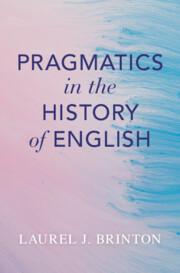This article is one of a series that reassesses the dhāraṇī texts of Mahāyāna Buddhism. The article seeks to examine dhāraṇī texts by using the linguistic tools of pragmatics, especially historical pragmatics, to assist the understanding of their statements. Rather than the meaning of the term dhāraṇī as a subject term, the domain of truth-conditional semantics, this paper examines statements in texts labelled dhāraṇī. Pragmatics examines meaning in context, and the categories of speech acts developed by Searle has been especially helpful in mapping out differences within such texts and the formalization of statements across texts. The grammaticalization of specific speech elements, especially interjections, in the context of mantra-dhāraṇīs is also discussed.

